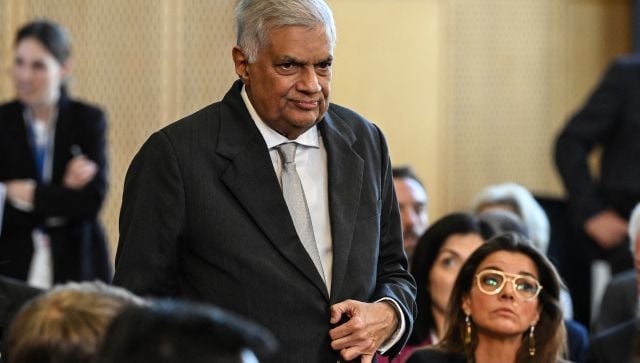In its monthly adjustment, the Sri Lankan government increased the retail price of petrol by Rs 20, which is the first retail price increase of any product since the new Value-Added Tax rates were implemented. The price increase took effect on Monday.
An earlier VAT of 15 per cent on other consumer goods was also increased to 18 per cent as the government sought to shore up its finances while Sri Lanka emerges from its worst economic crisis.
“In order to achieve economic stability, we must continue to forge ahead in this demanding path –- one that is not adorned with flowers but presents formidable challenges,” President Ranil Wickremesinghe said in his New Year message.
The US dollar’s exchange rate and the price of oil on the international market are the basis for the government’s monthly revisions to gasoline prices. But the increase on Monday was solely brought about by the increased VAT rates.
The band, which was previously subject to a 15 per cent VAT rate, will now pay a three per cent VAT charge as of Monday. This is a very unpopular change as the majority of VAT-exempt goods will now be subject to an 18 per cent VAT rate.
Sri Lanka declared economic bankruptcy in April 2022 by announcing its first-ever sovereign default. The island nation was hit by its worst financial crisis in history, with its foreign exchange reserves falling to a critical low and the public coming out on the streets to protest the shortage of fuel, fertilisers and essential commodities.
Months of civil unrest sparked by the economic crisis forced the resignation of then-president Gotabaya Rajapaksa when protesters stormed his residence in July 2022.
His successor Wickremesinghe has raised taxes and cut government subsidies to comply with an International Monetary Fund bailout and cracked down on anti-government protests.
The cash-strapped island government received approval last month from the International Monetary Fund (IMF) to release the second tranche, valued at $337 million. This brings the total amount of payments under the four-year facility to $670 million.
The IMF program’s reforms forced the government to impose cost-based utility rates, and the public was negatively impacted by multiple rate increases on power use.
According to the Ministry of Energy, the cost of petrol and diesel, which are often used for transportation, increased by more than SLR 20 per litre, making it the first product to see a retail price increase following the implementation of new VAT rates.
For the first time in the nation, fuel is subject to VAT.
The administration stated that it removed the 7.5% import tax on petrol in order to maintain retail prices at fair levels, taking into account the cascading impact on the already fragile economy.
The finance minister and president of the country, Ranil Wickremesinghe, stated last month that the VAT has to be raised from 15 to 18 per cent in order to bring state revenue up to levels required by the IMF.
Analysts point out that President Wickremesinghe’s administration is awkwardly positioned in 2024, the year of the election, as a result of the VAT rate rise.
It is anticipated that the presidential election will occur before November of this year.
The IMF rescue programme requires him to finalise by May a restructure of the island country’s $46 billion external debt after a government default in 2022.
The higher taxes kicked in as the government negotiated with its bilateral lenders and sovereign bond holders to reschedule repayments, a key condition of the IMF bailout.



